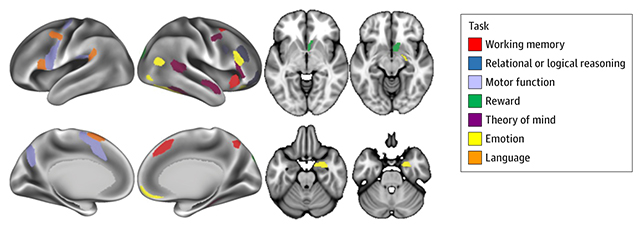Medical and recreational cannabis use is now legal in many parts of the world, but questions remain about its effect on physical and mental health – and a new study shows heavy use of the drug can cause problems for working memory.
Working memory is one of the executive functions – mental skills essential to functioning normally in day-to-day life. Unlike short-term memory – recalling a phone number for example – it helps us hold information while we actively use it to perform tasks. This is important for reasoning, decision-making, and controlling our behavior.
Researchers from institutions in the US and Canada looked at surveys and brain imaging scans of 1,003 young adults, matching self-reported cannabis use habits against changes in the brain during cognitive tasks.
The significant size of the group tested makes it the largest study of its kind ever to be completed, providing a rare look into how cannabis affects the way our brains operate.

Heavy cannabis use as well as recent cannabis use was associated with lower levels of brain activation during a commonly used working memory task. During the other tests, covering reward mechanisms, emotions, language skills, and motor skills, there was no substantial difference.
"We applied the highest standards to our research, setting rigorous thresholds for statistical significance across all seven cognitive function tests," says neurologist Joshua Gowin, from the University of Colorado Anschutz Medical Campus.
"To minimize the risk of false positives, we employed false discovery rate (FDR) correction. While some of the other tasks indicated potential cognitive impairment, only the working memory task showed a statistically significant impact."
The areas of the brain where activity was less than normal included the dorsolateral prefrontal cortex, the dorsomedial prefrontal cortex, and the anterior insula – areas associated with making decisions, focusing attention, and processing emotions.
We know that these brain areas also have a high density of CB1 receptors, targets for the tetrahydrocannabinol (THC) compound in cannabis, and that the sensitivity of these receptors gets dialed down in heavy cannabis users.
Previous research had suggested recent use of cannabis could be associated with reduced activation in these critical areas of the brain during working memory tasks.
While these results were consistent with previous findings, the analysis was able to show how the brain was impacted even after excluding individuals who showed cannabis still in their system at the time of testing.
Extensive use of this particular drug could be impacting certain parts of brain functionality, but it's a complex picture.
While there is good reason to think cutting back on cannabis before a mentally demanding situation could improve the brain's ability to recall, temporary withdrawal symptoms in heavy users might also compromise any benefits.
"People need to be aware of their relationship with cannabis since abstaining cold turkey could disrupt their cognition as well," says Gowin. "For example, heavy users may need to be more cautious."
Lots of questions remain: it's not clear what the mechanisms might be behind this association, or how permanent the changes might be. Age and other health factors are likely to play into the relationship too.
However, it's another step forward in understanding how extensive and regular cannabis use might affect one of the most important sections of the brain – giving both cannabis users and health professionals more information to work with.
"As cannabis use continues to grow globally, studying its effects on human health has become increasingly important," says Gowin.
"By doing so, we can provide a well-rounded understanding of both the benefits and risks of cannabis use, empowering people to make informed decisions and fully comprehend the potential consequences."
The research has been published in JAMA Network Open.
